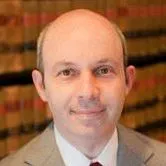Moving Forward

on Sep 4, 2005 at 9:46 am
Most important over the next few days will be a proper remembrance for the Chief Justice, who was a true public servant who devoted his professional life to the Supreme Court. Although he had a clear vision of the law, and it was a vision that involved moving the Court substantially away from what he regarded as the excesses and missteps of the Warren Court, the Chief’s principal concern was always with the Court as an institution. It was that fact — and his related talent at running the Court and the federal judiciary more generally — that earned him the great respect and admiration of colleagues on the left, not just the right.
Attention will now turn — too quickly unfortunately, given that we have lost a historic figure who should be remembered and appreciated without our thoughts diverted — to the likely successor and the process of confirmation. One issue that obviously arises is whether to defer the hearings for Judge Roberts, set to begin on Tuesday. I think it is likely that the hearings will go forward, unless the President decides to nominate Judge Roberts for the Chief’s seat. Precisely because that renomination as a practical matter would delay the Roberts process — if only because Democrats would use the change as a reason to press for the release of additional documents — I think it is likely the President will nominate someone else directly to be Chief Justice.
More broadly, it is in the President’s interest not to couple the process of confirming the successors to Justice O’Connor and the Chief Justice. Democrats have a stronger argument against a conservative successor to the Chief if the nominations are perceived as a package. If the process of confirming a successor for the Chief remains separate and distinct, it is easier for the President to maintain that a conservative appointment to succeed the very conservative William Rehnquist will not move the Court further to the right. So I think that the hearings will likely move forward.
There is some discussion of Justice O’Connor potentially remaining on the Court. That seems to me exceedingly unlikely because it doesn’t provide any practical benefit. Justice O’Connor’s vote in a case would only count if she were on the Court when the case was decided, not merely when it was argued. Because the President will want to name a successor for the Chief soon, rather than waiting until next summer when the Court’s Term ends, it makes little sense for Justice O’Connor to remain.
Confirming a new Chief Justice undoubtedly will take time. The President may seek to act quickly — showing decisive leadership — by nominating a successor early this coming week. Hearings would likely not start for at least six weeks. So the new Chief would not be seated until the Court’s second “sitting” of oral arguments, in November. If tradition holds — and the Court is a very tradition-oriented institution — cases argued in October that produced a four-to-four tie (assuming as is likely that Judge Roberts was seated by the October arguments so that there were eight sitting Justices) would be set for reargument either in late-spring or early next fall.


